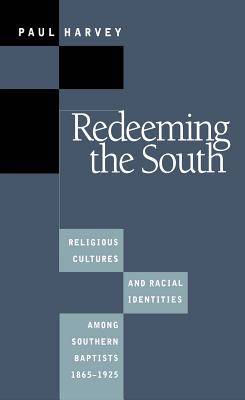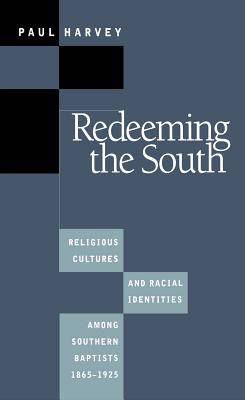
- Afhalen na 1 uur in een winkel met voorraad
- Gratis thuislevering in België vanaf € 30
- Ruim aanbod met 7 miljoen producten
- Afhalen na 1 uur in een winkel met voorraad
- Gratis thuislevering in België vanaf € 30
- Ruim aanbod met 7 miljoen producten
Zoeken
Redeeming the South
Religious Cultures and Racial Identities Among Southern Baptists, 1865-1925
Paul Harvey
€ 57,95
+ 115 punten
Omschrijving
Together, and separately, black and white Baptists created different but intertwined cultures that profoundly shaped the South. Adopting a biracial and bicultural focus, Paul Harvey works to redefine southern religious history, and by extension southern culture, as the product of such interaction--the result of whites and blacks having drawn from and influenced each other even while remaining separate and distinct.
Harvey explores the parallels and divergences of black and white religious institutions as manifested through differences in worship styles, sacred music, and political agendas. He examines the relationship of broad social phenomena like progressivism and modernization to the development of southern religion, focusing on the clash between rural southern folk religious expression and models of spirituality drawn from northern Victorian standards.
In tracing the growth of Baptist churches from small outposts of radically democratic plain-folk religion in the mid-eighteenth century to conservative and culturally dominant institutions in the twentieth century, Harvey explores one of the most impressive evolutions of American religious and cultural history.
Harvey explores the parallels and divergences of black and white religious institutions as manifested through differences in worship styles, sacred music, and political agendas. He examines the relationship of broad social phenomena like progressivism and modernization to the development of southern religion, focusing on the clash between rural southern folk religious expression and models of spirituality drawn from northern Victorian standards.
In tracing the growth of Baptist churches from small outposts of radically democratic plain-folk religion in the mid-eighteenth century to conservative and culturally dominant institutions in the twentieth century, Harvey explores one of the most impressive evolutions of American religious and cultural history.
Specificaties
Betrokkenen
- Auteur(s):
- Uitgeverij:
Inhoud
- Aantal bladzijden:
- 344
- Taal:
- Engels
- Reeks:
Eigenschappen
- Productcode (EAN):
- 9780807846346
- Verschijningsdatum:
- 21/04/1997
- Uitvoering:
- Paperback
- Formaat:
- Trade paperback (VS)
- Afmetingen:
- 155 mm x 232 mm
- Gewicht:
- 530 g

Alleen bij Standaard Boekhandel
+ 115 punten op je klantenkaart van Standaard Boekhandel
Beoordelingen
We publiceren alleen reviews die voldoen aan de voorwaarden voor reviews. Bekijk onze voorwaarden voor reviews.











